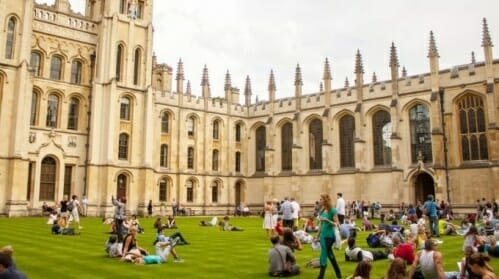The UK is a great place to study because of its people, culture and, standard of education. The UK is also home to lots of interracial people from Asians, South-Americans, Europeans to Africans. Nigerians and Ghanians are two African countries with lots of students in the UK. International relationship between Nigeria & the UK , as well as large numbers of people from other race especially west African nations like Ghana & Sierra Leone has enhanced adaptability, making the UK a second home to Nigerian students.
More so, the standard of education which Nigerians believe would give them exposure and an edge over those schooling in Nigeria has also led to an influx of these students to the UK. Universities in the UK are among the most reputed and highest ranking in the world.
In this article, we are going to discuss how to choose the best school for you and the requirement for easy admittance. This is focused towards Undergraduate and Postgraduate students.
Finding the right school for you
The UK has some of the best Universities in the world, considering the standard of education is very high. Finding the right school for you is dependent on the following:
- The course you intend to study.
- Your degree level – Undergraduate or postgraduate
- Your financial capability: Tuition fees and cost of living are different from city to city where these schools are located.
One of the important things about studying in the UK is that you will be guaranteed of finding a school where you want to apply. You can be sure your course would be available; if not in that school you want, in other schools
Entry Requirement
The entry requirements you need to meet will depend on the school you choose and the course you want to study. You should know your entry requirements and the deadline for each. To have the best chance of applying successfully, we recommend the following minimum qualifications which are standards in the UK:
Undergraduates:
Applicants who have completed the WASSCE (West African Senior Secondary Certificate Examination) will need to successfully complete a University-recognized foundation program before joining an undergraduate course. Many schools accept NECO certificates, which would also qualify you for foundation year.
Whether SSCE or NECO, you are required to have Grade B or C in at least 5 subjects to qualify for the International Foundation Program.

Foundation Program
The foundation year courses are designed to provide students of non-EU countries (to which Nigeria belongs) with the appropriate academic background for study at the bachelor’s degree level. This is because of the gap in educational backgrounds of these Nations and the UK. Some of these courses also offer additional English language teaching if you need to improve your proficiency. The foundation program is just for a year.
Successful completion of one foundation program guarantees progression to the first year of a related undergraduate course at the University. Not all universities offer foundation programs, so it is best you carefully research those that do.
Alternatives:
You can also apply for undergraduates study with:
A-Levels:
Your A-level grades should equal or exceed the total points required for admission into your chosen course. You can use the UCAS Tariff Calculator https://www.ucas.com/ucas/tariff-calculator to work out your total points.
Some courses will require you to have studied specific subjects at A level. For example, to study a science course you will usually need to have achieved passing grades in scientific subjects at A level.
A level points: A* = 56 A = 48 B = 40 C = 32 D = 24.
International Baccalaureate
This is studied as an alternative to A-levels or foundation schools. International Baccalaureate provides an internationally accepted qualification for entry into higher education by many universities across the globe. In the UK, most courses will require between 24 and 31 points in the International Baccalaureate (IB), depending on the degree you apply for.
Other Qualifications
Applicants with one or more of the qualifications listed below will be considered for direct admission for Year 1 entry In some schools:
- National Diploma with credit or distinction
- Higher National Diploma with credit or distinction
- Nigerian Certificate of Education
Also, one year of undergraduate studies at a recognized Nigerian University with strong SSCE grades and an average CGPA of approximately 3.5 out of 5 will be accepted at many universities in the UK.
Postgraduates:
The standard requirement in terms of grades for a PGD is an Upper Second Class Bachelor’s degree (2:1 degree) with an average CGPA of 3.5 out of 5 or above from a recognized Nigerian university.
However, courses and schools may accept a Lower Second Class Bachelor degree ( 2:2 degree), though a good work experience would be an added advantage. Some universities may also require you to have already undertaken some postgraduate level study. Every school has its requirements and conditions.

English language requirements
All international students coming to study in the UK on a Tier 4 visa are required to demonstrate their proficiency in English language. The minimum English language requirements for each program are specified in the course description.
English tests such as IELTS, TOEFL iBT, etc are accepted. In addition, a high score in English subject in WAEC exams/SSCE, if taken within the last seven years is accepted. The minimum grade requirement is usually at least a Grade C depending on the requirement of the course and school of choice. This is because Nigeria is known as an English-speaking Nation.
Application:
Kindly note that all applications for undergraduate and postgraduate studies (full-time higher education courses) are done using the Universities and Colleges Admission Service (UCAS) online application system https://www.ucas.com.
On the site, you will get a form to fill, in where you have the option of selecting five schools your application should be sent to. During the application, you are expected to have a personal statement of not more than 4000 characters to tell the university more about yourself and the reasons you picked your chosen course of study. This statement will be attached to the form online while filling it.
Fees
The UCAS charges fees for application. If you are applying to just one university for only one course, you will be charged £13. If you are applying for more than one school and more than one course, you will be charged £24. A Confirmation of Acceptance of Studies (CAS) form would be given after the application is successful. ( Read more about CAS requirements in our previous post ).
Scholarships and Bursaries
As a student from Nigeria, you may be eligible for a financial support In form of scholarships and bursaries. You can find out what is available to you on any of the schools’ websites and see the conditions required to be eligible. Once eligible, you should write to the schools following their process of application.
Additional Information
If you want to learn more about studying in any UK school, or you want help with your application, you can contact the regional offices or liaison centers of such schools in Lagos. Most UK Schools have representatives or agents here in Nigeria. You can check their websites to find out more.









Discussion about this post